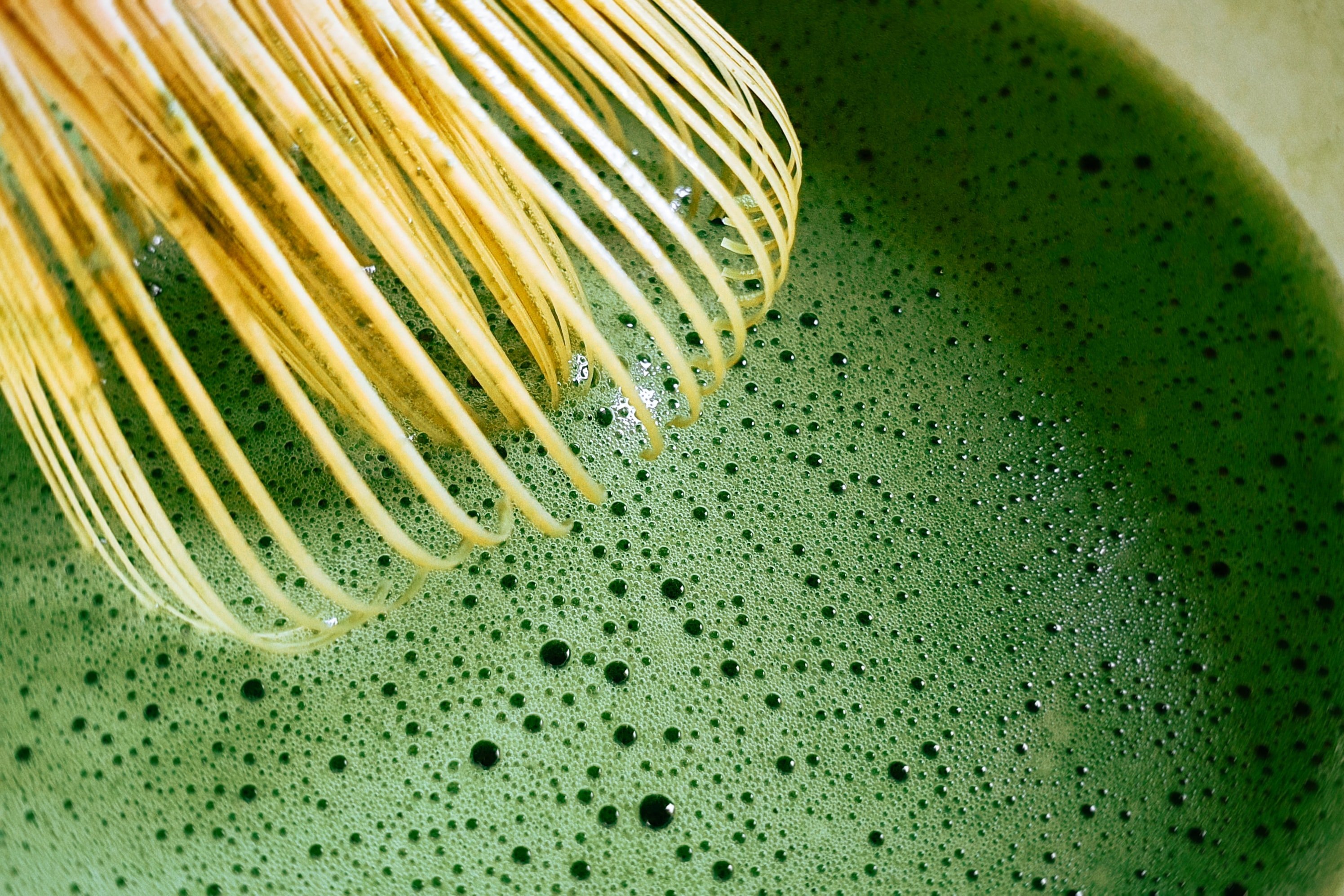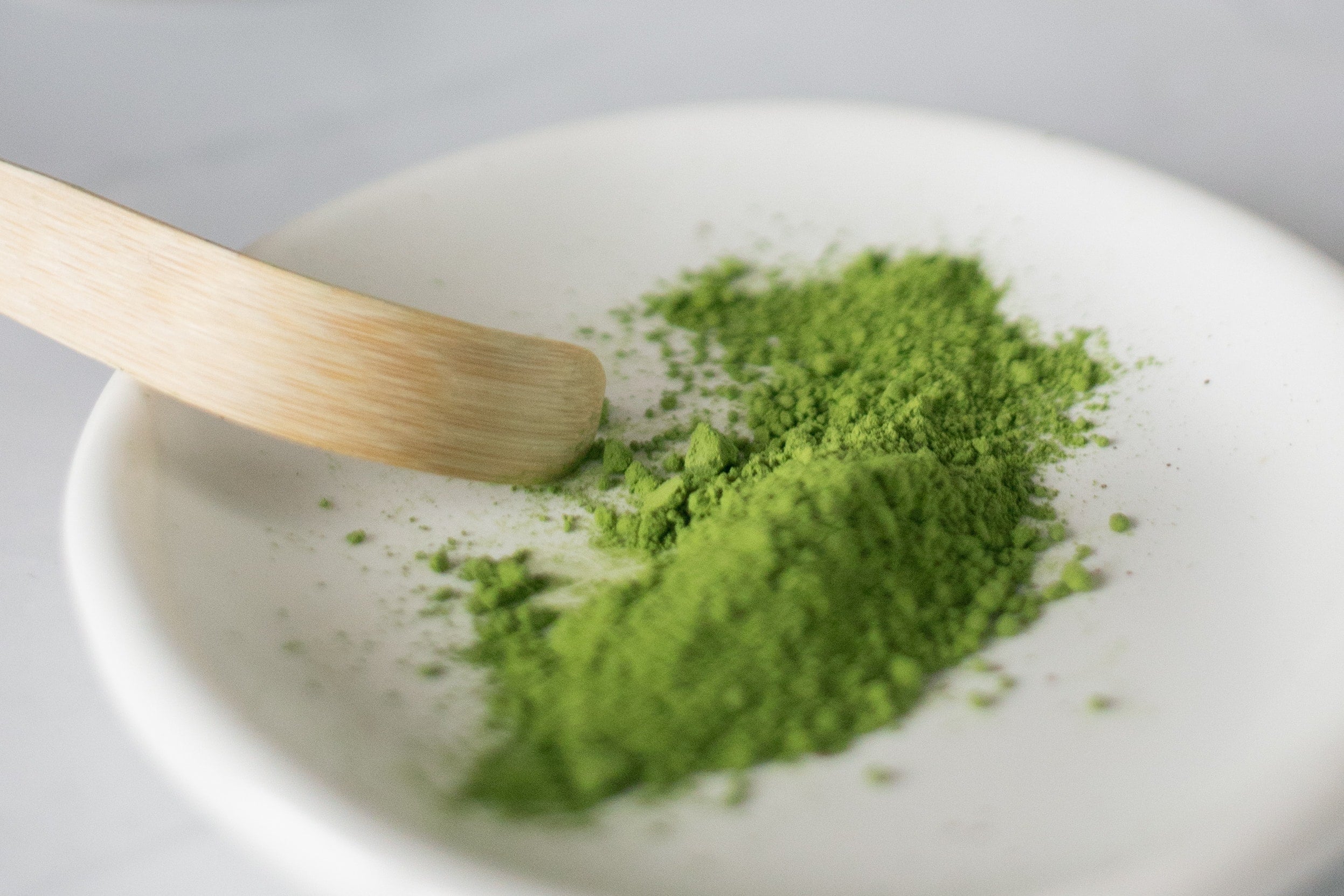Since 2015, matcha has been rising in popularity amongst tea drinkers and Instagrammers alike.
But it turns out, matcha is nothing new. It’s actually been used in ritual tea ceremonies since the 12th century.
So why all the hype about matcha? Is matcha green tea actually good for you? And how can you add it to your diet? Read on to find out why this green tea is a matcha made in heaven...
What is matcha?
If you were thinking the word matcha means something special, think again. It literally means “powdered tea.”
Matcha tea comes from the same plant that all tea comes from: Camellia sinensis.
Unlike regular green tea, matcha is shade grown 20-30 days before it is harvested. This process not only increases the amino acid content of the tea, but also the chlorophyll content which gives matcha its bright green color.
After the leaves are harvested, the leaves are steamed, dried and ground into a fine powder. When you drink matcha tea, you’re getting the nutrients from the entire tea leaf. This means you’re getting consuming more antioxidants. (More on that later!)
Matcha & cafeine
Because matcha is made from the entire tea leaf, it contains more caffeine than regular steeped tea — three times the amount, to be exact.
But how does matcha compare to coffee?
On average, one cup (8-oz) of brewed coffee contains 95mg of caffeine, although that number can vary greatly depending on the type of coffee. For example, 12-oz of cold brew can contain 150-240 mg caffeine.
Matcha, on the other hand, contains around 70-80 mg of caffeine per cup.
While the difference in caffeine is minimal, the type of caffeine in tea makes all the difference. Why? Because the body metabolizes it differently.
Unlike the caffeine in coffee, which is quickly released into the bloodstream, the caffeine in matcha is slowly released. This is because the caffeine molecules in matcha (and green tea) bind to the catechins. As the catechins break down, caffeine enters the bloodstream slowly over a 6-8 hour period.
This process also prevents adrenaline and insulin spikes, which prevents the dreaded caffeine crash and drop in blood sugar.
Top 7 matcha green tea benefits
1. High in antioxidants
Good things come in small packages — and tea leaves are no exception!
Matcha green tea has one of the highest antioxidant ratings. The Oxygen Radical Absorbence Capacity (ORAC) value is 1348 units per gram. That’s 13x the antioxidants in pomegranates and 15x the antioxidants in blueberries.
Studies have shown the high antioxidant content in matcha tea can prevent cell damage caused by free radicals.
Matcha green tea also contains a class of antioxidants known as catechins. And it’s particularly high in epigallocatechin gallate or EGCG — 3 times more than other green teas.
2. It may protect against certain cancers
Speaking of EGCG, multiple studies have shown this catechin is protective against many types of cancers.
Prostate cancer: A 2008 study published in “Oncogene” found that the EGCG in green tea helped kill off prostate cancer cells.
Breast cancer: A 2006 meta analysis found women who drank the most green tea lowered their risk of breast cancer by 22%.
Colon and rectal cancers: A 2008 study of 69,710 Chinese women found regular green tea drinkers slashed their risk of colorectal cancer in half.
Skin cancer: Lab studies show that drinking green tea or applying green tea directly to the skin can help prevent UV-triggered skin cancer by absorbing UV damage and scavenging free radicals.
Lung cancer: In 2008, researchers found EGCG in green tea can inhibit the migration of bronchial tumor cells in the lungs. And it’s not just EGCG that plays a role in matcha’s cancer-fighting abilities.
According to the National Cancer Institute (NCI), EGC, ECG, and EC are also powerful cancer fighters.
3. It's calming
Want to feel more zen? Drink matcha!
Matcha green tea contains L-theanine, an amino acid that puts you in a calm and meditative state. No wonder Buddhist monks have been drinking matcha for centuries!
Because matcha is shade grown, the L-theanine content in matcha green tea is 5 times the amount than other green teas (20 mg vs 4 mg).
Unlike the caffeine in coffee, when the caffeine in matcha green tea is combined with L-theanine, you won’t end up with the jitters. Instead, you’ll feel more calm and alert.
4. It can improve your focus & concentration
The L-theanine and caffeine combo can also increase your focus.
In 2008, researchers tested the effects of cognition with and without caffeine. Participants were tested on word recognition, rapid visual information processing, critical flicker fusion threshold and attention switching.
The results, which were published in “Nutritional Neuroscience,” found L-theanine and caffeine improved both speed and accuracy of performance and reduced distraction.
Other studies have shown matcha is beneficial in sustained attention as well as memory.
5. It's good for your heart
Green tea is one of the best drinks for heart health — and matcha, which is a kind of green tea, is no exception!
Here’s how green tea (and matcha) can benefit your heart:
According to a 2009 study published in “Stroke", drinking 3 cups of green tea a day reduced their chance of having a stroke by 21%.
A 2011 meta-analysis found that people who drank the most green tea had a 28% lower risk of coronary artery disease than those who drank the least green tea.
Another 2011 meta-analysis of 14 controlled trials found that green tea significantly lowered LDL (bad) cholesterol as well as significantly lowered triglyceride levels.
6. It may help with weight loss
Are you looking to lose weight? Matcha may help.
According to a 2009 meta-analysis of 11 different studies, researchers concluded there’s a link between green tea (specifically, the antioxidant EGCG) and weight-loss and weight management.
A 2005 study published in the “American Journal of Clinical Nutrition” also supports green tea’s weight-loss properties. Over the course of 12 weeks, participants who consumed catechin-rich green tea extract showed significantly lower body fat mass, BMI, and body weight than those who consumed less.
7. It can improve your physical performance
Forget Gatorade! If you’re an athlete, matcha is where it’s at!
Caffeine is commonly used as a stimulant in sports. And studies have shown, on average, caffeine can increase physical performance by 11-12%.
Caffeine can also improve physical performance by making the fatty acids in fat tissue available for use as energy.

How to enjoy matcha green tea
Our favorite way to enjoy matcha green tea is in a matcha latte! We make our matcha lattes with our Power Matcha mix. Not only does it include matcha, which we source from Japan, but also 4 other brain-boosting superfoods and a serving of greens!
Of course, there are plenty of other ways you can enjoy matcha green tea than as a warm beverage. Here are some of our favorite matcha recipes:
Matcha Oatmeal — Instead of a latte, get your morning matcha fix with a bowl of Matcha Overnight Oats.
Matcha Pancakes — What do you get when you combine matcha with pancakes? An amazing brunch that will keep you energized and focused all day long!






